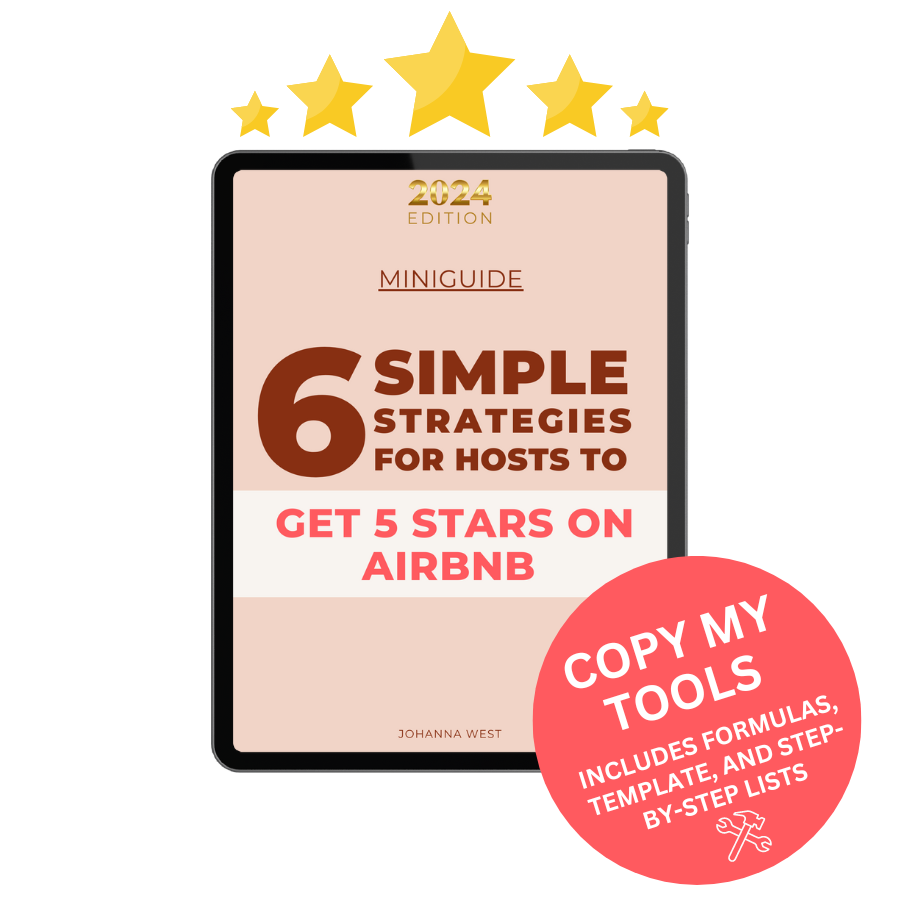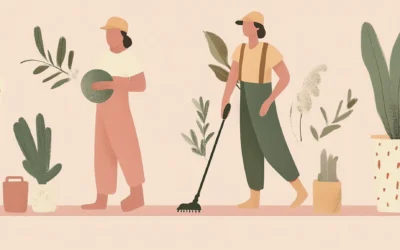Dynamic pricing, occupancy rate, arbitrage. That Airbnb lingo doesn’t need to be overwhelming. And it definitely shouldn’t stop you from becoming a host. But I will tell you this: starting an Airbnb business is both exciting and terrifying. I vividly remember the mix of anxiety and hope when I listed my first property!
Here’s everything I wish I’d known before starting my Airbnb journey – from avoiding costly regulatory mistakes to maximizing my property’s earning potential. After managing multiple properties and helping a couple of hosts launch their businesses, I’ve learned that success comes down to smart prep and systems.
What’s your hosting potential?
Understand startup costs and regulations
My first major mistake as an Airbnb host: I jumped in without accurately checking local regulations and ended up with a fine! That’s exactly why I’m passionate about helping new hosts start off on the right foot. Doing proper research before launching will save you a lot of headaches.
The first thing you need to do is crunch numbers. I remember sitting at my kitchen table with a spreadsheet, trying to figure out if I could actually make this work. Your startup costs will typically run between $5,000-$15,000 for a one-bedroom apartment. This includes everything from basic furniture to essential kitchen gadgets guests expect. Start small – think basic necessities first.
Learn some Airbnb lingo
Rental arbitrage is the way to go sometimes. Instead of buying property, you start by renting an apartment and listing it on Airbnb (with your landlord’s blessing, of course). There are pros and cons to rental arbitrage, and keep in mind some regulations don’t allow it.
One piece of lingo you should learn from the start is RevPAR: Revenue per Available Rental. I learned to stop obsessing over nightly rates and focus on this instead. My first property’s RevPAR jumped 32% when I switched to dynamic pricing based on local events and seasonality. Tools like AirDNA helped me forecast this accurately.
Time commitment and surprise costs
Time commitment caught me off guard completely. At first, I thought I could manage everything while working full-time. That’s just not possible. Between guest communications, cleaning coordination, and maintenance issues, I was spending about 15-20 hours per week on one property. Consider whether you want to be hands-on or hire a property manager – who typically charge 20-30% of your revenue.
Some guests will be absolutely lovely. Others won’t. You’ve got to make sure you keep a little buffer to make repairs when your guests break things. One of my guests managed to jam a brand new smart lock. So I budget for unexpected repairs and replacements. I set aside 5% of monthly revenue for maintenance and another 5% for upgrades. It might seem excessive, but trust me, it’s better to have it and not need it.
My biggest hosting success secret is to just start. After doing your research on all the legal stuff and crunching numbers, of course. But then, go for it. You’ll make mistakes, learn the ropes, and improve. That’s how I built up my Superhost status, which now helps my listings rank higher in search results.
Setting up your professional hosting foundation
Business structure and licensing
Registering as a business entity protects your personal assets if something goes wrong with your Airbnb. You’ll need to choose between an LLC or sole proprietorship based on your state’s requirements and liability needs. Most areas require proper registration before you can open a business bank account or obtain STR insurance coverage. The process typically costs between $50-500 depending on your location.
Insurance and financial management
Regular homeowner’s insurance won’t cut it – trust me on this one. After a guest’s dog destroyed my couch, I looked into specific STR coverage. I also now use a dedicated business account to track every expense, from toilet paper to property taxes. Come tax season, you’ll thank yourself for this organization.
Having a separate STR bank account saved me during my first tax audit. My accountant showed me how to track everything from cleaning supplies to mortgage interest. Pro tip here: save 30% of your revenue for taxes.
Systems and automation
Opening a business account was just the start. I created templates for everything – guest communications, house rules, local recommendations. My favorite tool? A smart lock system that generates unique codes for each booking. No more 2 AM lockout calls!
Remember to document every process, even the small stuff. When I hired my first cleaner, having detailed turnover procedures made training a breeze. Now my entire operation runs like clockwork, whether I’m on-site or traveling.
Let’s prepare your property for success
Property setup and design choices
My first Airbnb interior design attempt was… interesting. Picture mismatched furniture from five different yard sales. Guests were polite, but the reviews told the real story. Now I stick to neutral colors and invest in quality basics that last.
Your Airbnb amenities list matters more than you think. I keep a “must-have” kitchen essentials checklist: good knives, quality pots and pans, and plenty of coffee supplies. The bathroom essentials are just as crucial – nothing worse than a guest running out of toilet paper at midnight!
Smart storage and guest experience
I became obsessed with storage solutions after guests kept asking where to put their luggage. I installed floating shelves, bought ottoman beds, and added hooks everywhere. Every square inch counts! The investment in a quality smart lock system paid for itself in convenience alone.
Also, photography can make or break your listing. My first photos were iphone shots with poor lighting. Professional photos increased my bookings by 40% the first month. Yes, they cost $300, but that paid for itself in a week with higher nightly rates.
Maximizing your booking potential
A multi-platform strategy could be a good idea
After three months of Airbnb-only listings, I expanded to Vrbo and Booking.com. My occupancy jumped from 54% to 71%. A channel management software keeps all calendars synced – I learned that after an embarrassing double booking incident.
Guest screening and communication
My worst guest experience taught me to trust my gut. Now, I have a pre-booking questionnaire asking about visit purpose and group size. Red flags include vague answers and last-minute bookings from locals. Response time matters too – I aim for under an hour during business hours.
Building your Superhost status
Superhost status took me six months to achieve. My focus was consistent 5-star ratings in cleanliness and communication. I created detailed checklists for my cleaning team and automated check-in messages. Small touches like local coffee beans and handwritten welcome notes make a difference.
Every review matters. When a guest mentioned weak water pressure, I installed a new shower head the next day. Their updated review praised my responsiveness. These small wins add up to Superhost status, which typically brings 20-30% more bookings.
Automated systems and scaling
Automation saves my sanity. My property now runs on:
- Automated messaging sequences
- Digital guidebooks
- Smart home monitoring
- Dynamic pricing tools
One time, my smart lock batteries died while I was out of town. Now I have backup codes and local support on speed dial. These systems let me manage two properties with the same effort as one.
I track everything in a simple spreadsheet: occupancy rates, revenue, guest satisfaction scores. When starting your second property, these metrics guide your expansion strategy. Focus on what works – my best performing listing became the template for all future properties.
Your takeaway
Take 30 minutes today to research your local STR regulations and licensing requirements. Make a checklist of all permits and registrations you’ll need – this foundation will save you headaches later!









